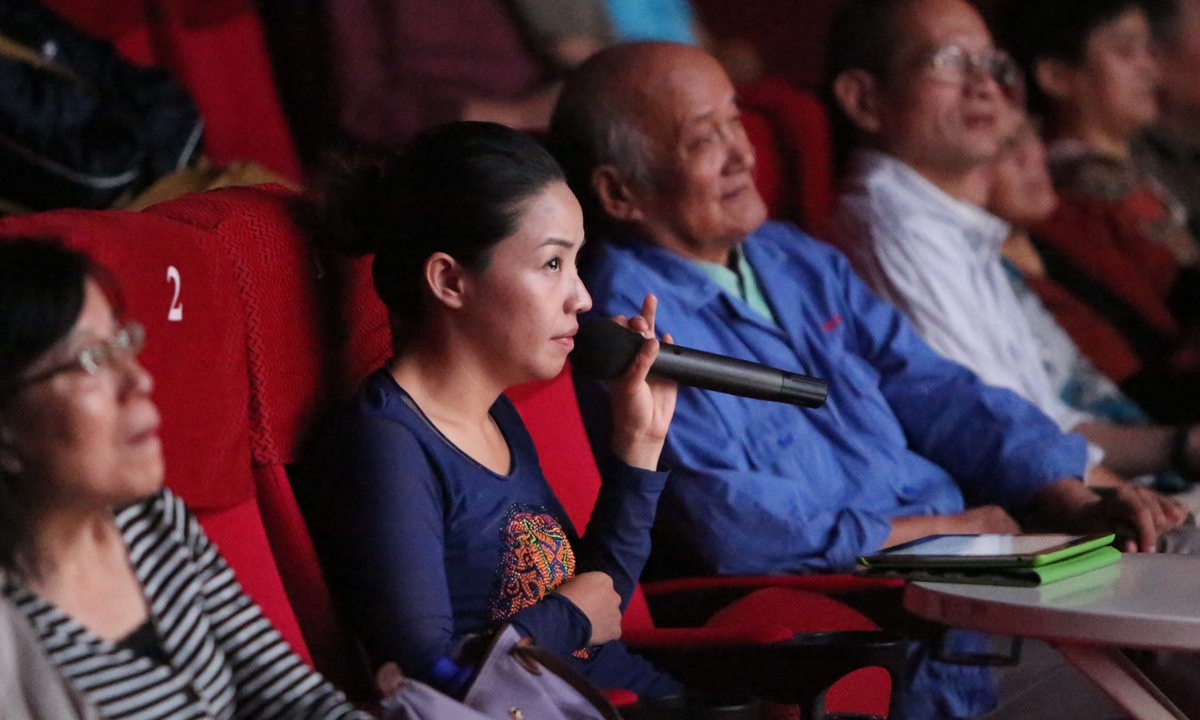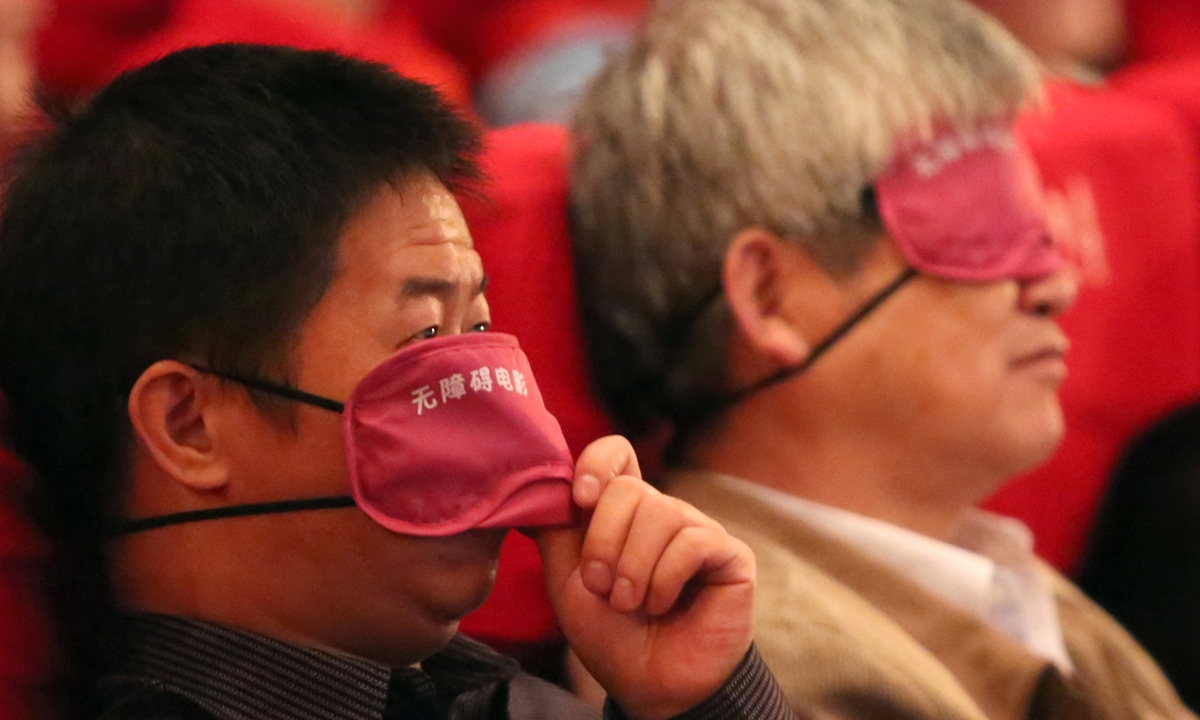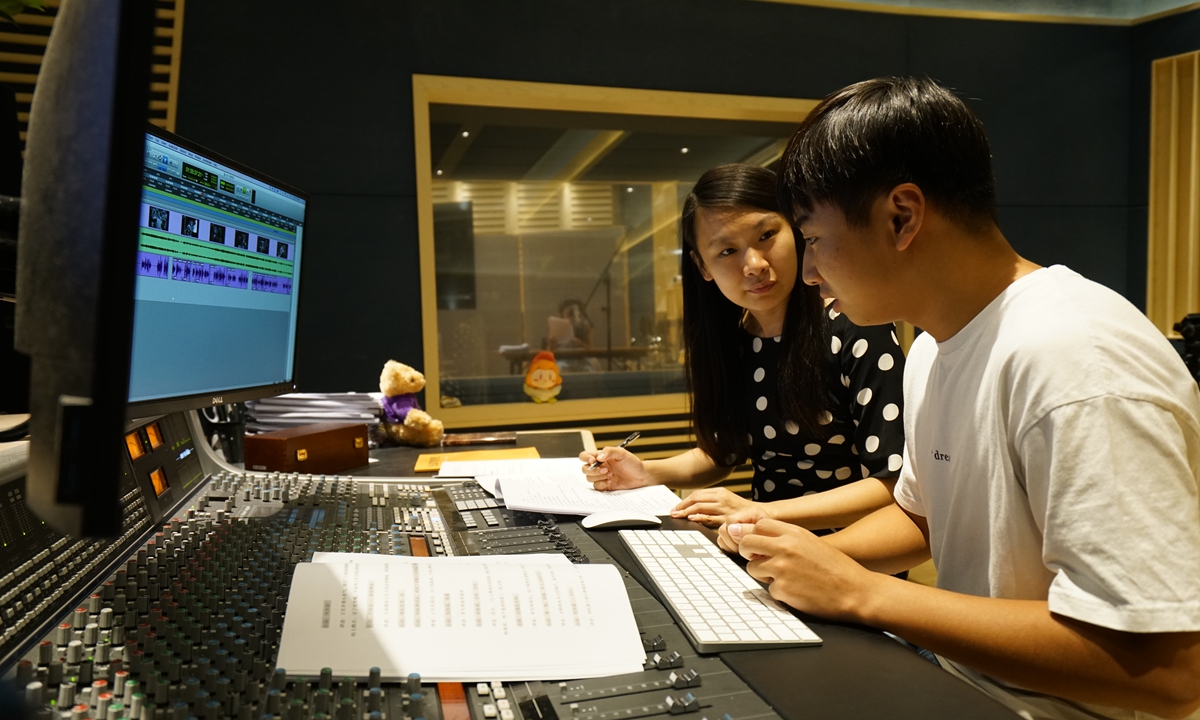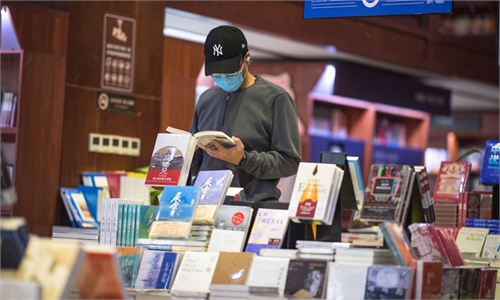ARTS / FILM
Audio descriptions bring cinema alive for visually impaired
Voices in the darkness

A volunteer provides an audio description of a movie for a visually impaired audience in Shanghai. Photo: IC

People in Shanghai wear eye masks to experience visually impaired life. Photo: IC

Zhao Xijing (right) from Guangming Cinema teaches a student about audio description production. Photo: Courtesy of Cai Yu
A diminutive recording studio located inside the Communication University of China (CUC) in Beijing is the production center for hundreds of movie audio descriptions specially made for theaters across China that serve the visually impaired.It is the epitome of many similar projects across China. However, as there are over 10 million of people living with visual impairment in China, the number of theaters providing the service falls short of demand.
"Our next goal is for these audio descriptions of films to be available at the same time as their main cinema release, so people with visual impairments can walk into the cinema with their family and friends to cry and laugh together," Fu Haizheng, manager of the Guangming Cinema (Light Cinema) and project/associate dean of the Institute of Accessible Information and Communication at CUC, told the Global Times on Wednesday.
From the landscape in the background to the detailed movements of the characters, these creators describe every detail in the movie, so visually impaired people can enjoy it like every other moviegoer.
From the Chinese red revolutionary movie 1921 and Wolf Warrior 2 to Doraemon and Coco, the team of more than 500 hand over their audio descriptions to cable company Gehua, which provides them online for more than 200 million users and conducts movie screening events within theaters as well.
"They [the visually impaired] also pursue art, life, and movies equally like the rest of the world."
Expanding niche
In the early 2000s, similar projects began to spring up in cities like Beijing and Shanghai.
In Beijing, a small screening room in the heart of the city has been serving as the venue to screen films for tens of thousands of visually impaired moviegoers for decades.
Founded by Wang Weili in 2005, the Xinmu Theater (Heart and Eye Theater) is the first impairment free cinema ever in China. Unlike the recording studio mentioned above, the theater presents films in a more original way.
While the movie is playing on screen, volunteers provide detailed and vivid narration to listeners about what is happening on screen, including the time, scenery, gestures, facial expressions and colors.
Since 2019, 50 theaters in Shanghai have been selected across the city as designated theaters for the local impairment-free project Zhiai Cinema (Beloved Cinema), where movies are regularly screened for people with vision problems and their family and friends.
"My family and friends used to take me to the cinema to watch movies and they would describe them to me while watching themselves. I always felt very guilty as this was very tiring for them. This project makes me feel like I'm like everybody else while watching the movie," Xuehui, who lost her sight at age 8, said after trying one of the Shanghai cinemas in 2020.
A leap forward
According to 2019 data from the China Association of the Blind, the country has over 17 million people with vision problems.
While progress has been made, challenges still exist such as copyright and quality issues.
"Copyright can be a huge problem for these artistic works," Cai Yu, one of the PhD students who has been working with the Guangming Cinema project for years, told the Global Times.
To expand the range of movies that can be converted, China has applied for entry to the Marrakesh Treaty and is expected to be approved in May 2022.
Signed in Morocco in 2013, the Marrakesh Treaty is an international treaty concerning copyright permissions for specially adapted literature for people with visual impairments.
"Before joining the treaty, the adaptation of movies into accessible versions required the authorization of the copyright owner, otherwise there could be an issue of infringement. But soon we can make more movies at a higher rate of efficiency," said Cai.
Another issue movies are now facing is the varying levels of quality, which has led to the failure of some projects.
"There are some of companies who came to us to learn and tried to do similar projects in the name of public welfare. But if they don't do it with sincerity and responsibility, it will only become a mess in the end," said Cai.
"It's all about responsibility and patience when you do this work. If you don't have either of them, I don't think it is the right job for you," said Luan Hui, another volunteer at the Guangming Cinema.



